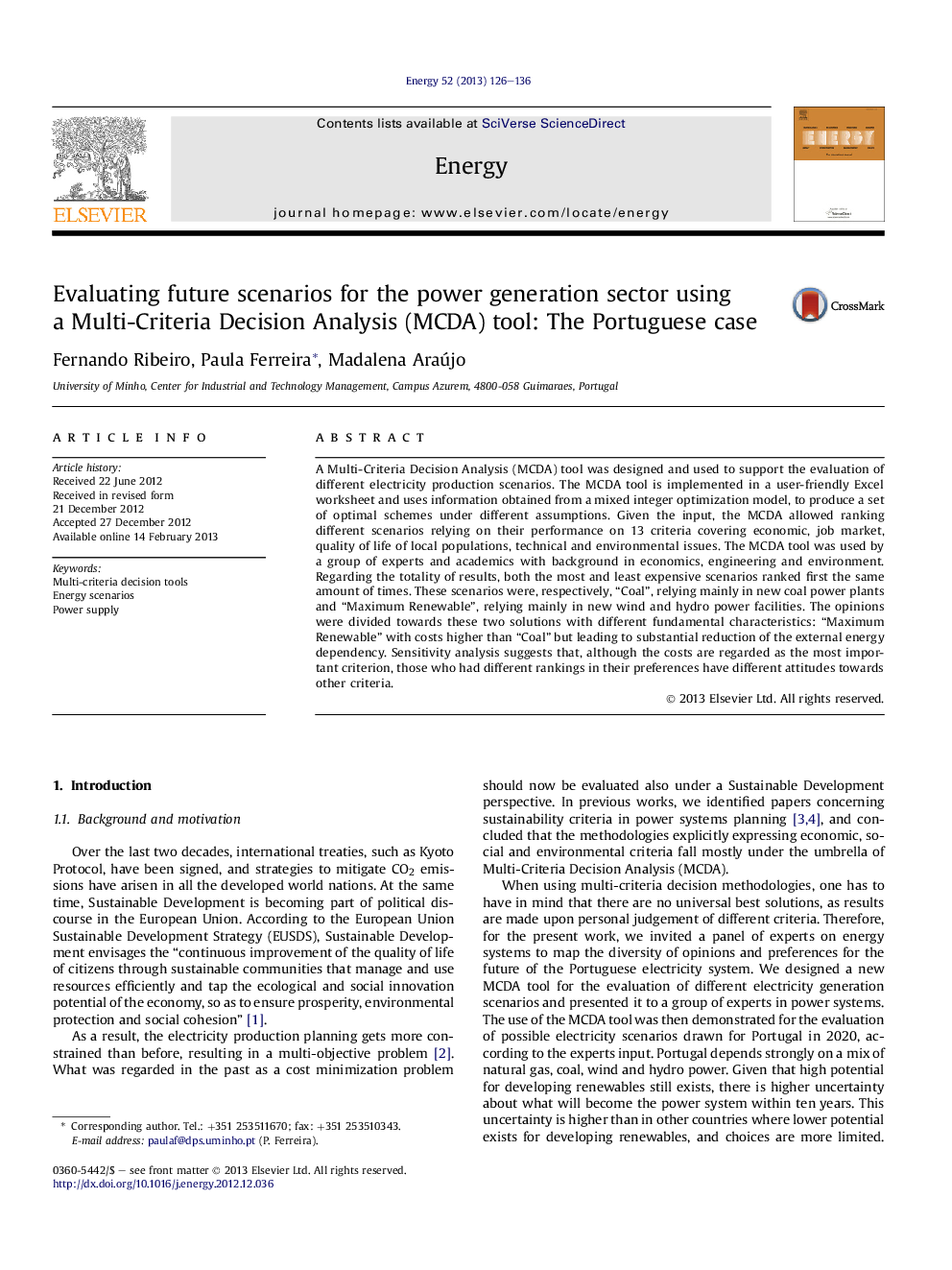| Article ID | Journal | Published Year | Pages | File Type |
|---|---|---|---|---|
| 1732834 | Energy | 2013 | 11 Pages |
A Multi-Criteria Decision Analysis (MCDA) tool was designed and used to support the evaluation of different electricity production scenarios. The MCDA tool is implemented in a user-friendly Excel worksheet and uses information obtained from a mixed integer optimization model, to produce a set of optimal schemes under different assumptions. Given the input, the MCDA allowed ranking different scenarios relying on their performance on 13 criteria covering economic, job market, quality of life of local populations, technical and environmental issues. The MCDA tool was used by a group of experts and academics with background in economics, engineering and environment. Regarding the totality of results, both the most and least expensive scenarios ranked first the same amount of times. These scenarios were, respectively, “Coal”, relying mainly in new coal power plants and “Maximum Renewable”, relying mainly in new wind and hydro power facilities. The opinions were divided towards these two solutions with different fundamental characteristics: “Maximum Renewable” with costs higher than “Coal” but leading to substantial reduction of the external energy dependency. Sensitivity analysis suggests that, although the costs are regarded as the most important criterion, those who had different rankings in their preferences have different attitudes towards other criteria.
► Future scenarios for power generation are proposed and evaluated under a set of criteria. ► A Multi-Criteria Decision Analysis (MCDA) tool is used to evaluate the scenarios. ► The importance of each criteria for the decision-making process is analyzed according to experts' judgement. ► The results demonstrate the utility of the MCDA to support sustainable energy decisions.
